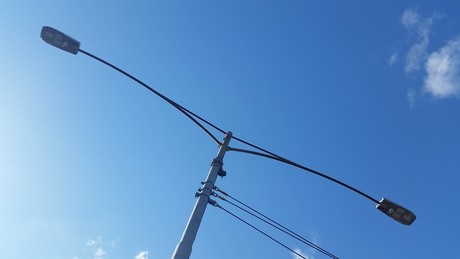Tackling LED uptake challenges

Since last year 80,000 LED streetlights have been installed throughout Australia, and technology trials and pilots are taking place in most major centres.
The Queensland local government has set out to deliver an energy-efficient street lighting initiative master plan which would see the Sunshine Coast become a pioneer in public lighting.
According to Ironbark Sustainability Business Manager Alexi Lynch, more work can be done. The South East Queensland (SEQ) Council of Mayors has undertaken a feasibility study into a regional smart street lighting solution and the Sunshine Coast’s Urban Lighting Master Plan is also a step in this direction.
“It’s too early to consider the region or the model a pioneer for public lighting, because while there has been a lot of talk and a lot of noise, there haven’t actually been any results yet,” said Lynch.
Despite this, studies of this nature allow councils to think through the practicalities of managing data and the usefulness of data and control. SEQ councils are currently examining all the options of delivering LED street lighting. This includes negotiating LED tariffs with distribution companies such as Energex.
“Some Queensland councils are now working on real solutions to change to move beyond the talk that has absorbed much of the sector over the past seven to eight years,” says Lynch.
On the NSW front, with the state going through council amalgamations, City of Ryde Asset Systems Manager Anthony Ogle said that for the Ausgrid and Endeavour networks, the main issue should be who controls the controllers and receives the benefits, not simply financial energy savings, which is insensitive to amalgamation.
Amalgamations have also afforded opportunities for new Community Strategic Plans (CSP) to bring street lighting and the smart city to the fore. However, collective industry knowledge gaps exist wherein distribution network service providers don’t understand the budget, decision or procurement requirements of local government, as well as how to integrate lighting with other council infrastructure and purposes.
Lynch projects that the ratification of the Minamata convention would drive change in low LED uptake regions like Queensland as it transitions from the innovator phase of the technology adoption life cycle to the early-adopter phase. The Minamata convention seeks to protect human health and the environment from mercury emissions. If ratified by Australia, it would see the LED market grow exponentially as councils would be forced to convert to LED.
In an Australian first, distribution businesses Citipower and Powercor are now offering a network-wide smart street lighting system for councils. The Melbourne bulk changeover sees thousands of smart city-enabled LEDs installed in partnership with Citipower, including pedestrian and vehicle category lights. Citipower and Powercor are also trialling air quality monitors in partnership with the Environment Protection Authority (EPA) Victoria.
Smart poles and hubs can now be considered for metered as well as unmetered lighting in the future, while new funding opportunities are emerging in partnership with telecommunication companies looking to plug gaps in their networks.
Profiling major street, outdoor, urban and public connected lighting, the 5th Annual Australian Smart Lighting Summit will be held from 13–14 September 2017 at the Melbourne Convention and Exhibition Centre. Delegates will hear from local and international lighting specialists such as Joe Hancock, Principal Streetlight Leader of Florida Power & Light Company (USA), who will profile North America’s largest streetlight control network. Both Anthony Ogle and Alexi Lynch are presenters at this year’s event.
Taking action on sustainable cooling
Demand for cooling is set to triple by 2050, due to population increases, more extreme-heat...
New digital twin will plan the energy systems of the future
A Netherlands-based project has received a massive €16.5m grant to simulate and study the...
Dynamic software for a global BESS developer
Australia's Akaysha Energy enlisted the services of Gurobi Optimization to help fine-tune its...




